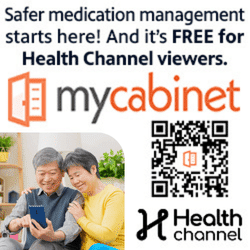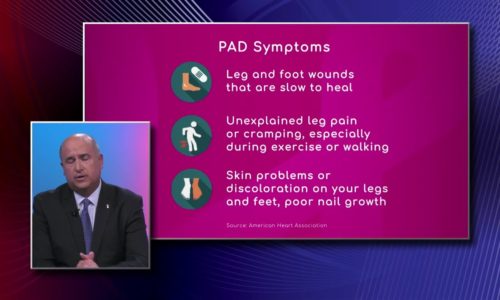Arteries & High Cholesterol |
With a digital imaging, Dr. Rosendo Collazo, Internal Medicine Physician with Baptist Health Primary Care, explains the artery.
He describes the normal elements of the artery and the development of plaque. He also explains how cholesterol can create an inflammatory response that helps develop the plaque.
Having low cholesterol reduces the risk of clots, he says.
Transcript
We wanted to see if we can get you over to our little TV camera over there and and have you point out on our monitor specifically what high-cholesterol looks like from inside the artery would you be so kind to show us on the BioDigital there so what we have here is a picture of the inside of an artery and we have the normal elements which is the outer portion and the inner portion of the artery and then we have development of plaque and this is where cholesterol plays a role cholesterol will in excess can help creates an inflammatory response that helps develop this plaque that can lead to narrowing of the artery and then the risk is that if this inner lining of the artery were to have any kind of break or that could lead to an acute onset of platelet formation and a blood clot that can then compromise whatever organ is downstream from the circulation so lowering the cholesterol is also going to help reduce the risk for that to happen you








